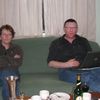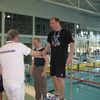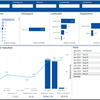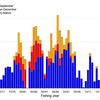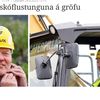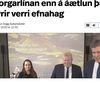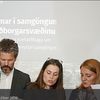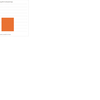24.4.2009 | 13:04
Spilling - hverjum er treystandi?
Ţótt ég segi sjálfur frá verđ ég ađ segja ađ ég stóđ vaktina vel sem ţingmađur, gagnrýndi spillinguna og benti á leiđir til úrbóta. Ég sendi m.a.s. Transparency International bréf fyrir ríflega ţremur árum til ađ hrekja mat ţeirrar stofnunar á ađ hér vćri allt međ felldu. Víđa fékk ég bágt fyrir.
Bréfiđ upp á tćpar ţrjár blađsíđur fylgir hér međ.
X-F
Transparency International (TI)
Alt Moabit 96 - 10559 Berlin, Germany
Phone: +49-30-343 8200 - Fax: +49-30-3470 3912
E-mail: ti@transparency.org / Web: http://www.transparency.org
Reykjavik, November 1st, 2005
To whom it may concern
Recently, Transparency International (TI) published a survey (see enclosed 1) ranking countries around the world in order of their level of corruption, both in politics and business. According to the latest results, Iceland is the least corrupt country in the world, but many Icelanders have expressed their disbelief in the results of the survey.
I am an MP for the Liberal Party in Iceland, and I wrote an article on my website expressing my disbelief in the survey, listing some examples of corruption in Iceland. Then several people wrote to me, giving comments regarding the survey, saying that they could not believe the results and giving examples on why Iceland cannot possibly be the least corrupt country in the world. I have made the following list of examples of corruption, built on their comments:
1) The reluctance of the political parties to reveal their sources of financing, with the ruling Independence Party still adamantly against opening their books.
2) The sale of the state banks Búnađarbanki and Landsbanki in 2002, from which Prime Minister Halldór Ásgrímsson and his family profited personally.
3) Friends and family of former PM Davíđ Oddsson have been appointed to the Supreme Court, in particular naming Ólafur Börkur Ţorvaldsson in 2003, who University of Iceland law professor Sigurđur Líndal said was one of the least qualified candidates for the position.
4) The connection between members of the ruling coalition and players in the oil price-fixing scandal, naming Kristinn Björnsson, the former CEO of Skeljungur (Shell), who is the husband of parliamentary president and Independence Party member Sólveig Pétursdóttir, who was also Minister of Justice at the time of the scandal´s investigation. Björnsson is today the vice chairman of Árvakur, the company that publishes Morgunblađiđ, a widely distributed newspaper.
5) The "Baugur-case", where an investigation lasting three years and costing millions of krónur yielded 40 charges of economic crimes (only eight of which have made it to the Supreme Court), but is considered by many to be a politically motivated attack from key Independence Party players against corporate giant Baugur Group.
The survey´s result is confusing and therefore I have consulted the methodology of TI, to see how you´ve arrived at your conclusions (described on TI´s website):
“The TI Corruption Perceptions Index is a composite survey, reflecting the perceptions of business people and country analysts, both resident and non-resident. It draws on 16 different polls from 10 independent institutions. For a country to be included, it must feature in at least 3 polls.”
Fair enough. TI’s table says that eight polls were used to assess Iceland. After a minimal amount of digging, it seems that in fact there were only four different polls used, for different years. These were the World Competitive Yearbook (conducted by the International Institute for Management Development), Grey Area Dynamics (conducted by the Merchant International Group), the Global Competitiveness Report (conducted by the World Economic Forum) and Risks Ratings (conducted by World Markets Research Centre). And what do these polls do?
The World Competitive Yearbook criterion ranks countries around the world by, in their own words, “economic performance, government efficiency, business efficiency and infrastructure.”
Grey Area Dynamics (GAD) seeks to help investors analyse the stability of countries, saying on the methodology page of their website that GAD “is a unique programme designed to assess risks, weaknesses and threats.”
The Global Competitiveness Report describes itself as “a valuable tool for shaping economic policy and guiding investment decisions.”
Risk Ratings says that it “assesses the foreign direct investment (FDI) climate based on six individual ratings in each country: political, economic, legal, tax, operational and security.”
In other words, Iceland’s entire rating was based mostly on how well foreign investors can expect to do in our country. That being the criterion, it’s easy to see how some of the largest examples of corruption in Iceland managed to slip through the net.
Curiously enough, as you descend TI’s list of corrupt countries, you’ll notice a trend: the more corrupt the countries get, the more likely it is that more polls were used to rate them. Perhaps if Iceland was studied on a criterion based on more than just how much you can expect to cash in should you invest here, Iceland’s ranking would be slightly different.
This is not to say that there is much more corruption in Iceland than in other countries. But it can hardly be one of the least corrupt countries, and there is certainly room for improvement. And studies which make broad assessments based on narrow evidence certainly don’t help.
Sincerely,
_________________________________
Sigurjón Ţórđarson, MP
24.4.2009 | 08:58
Viđ höfum haft rétt fyrir okkur
Frjálslyndi flokkurinn hefur veriđ stefnufastur. Ţjóđinni hefđi sannarlega farnast betur ef stefna Frjálslyndra hefđi ráđiđ för.
Frjálslyndi flokkurinn hefur haft opiđ bókhald frá upphafi og ekki ţegiđ mútur.
Hann hefur beitt sér fyrir réttlátri og árangursríkri fiskveiđistjórn í sjávarútvegi sbr. leiđ Fćreyinga. Reynslan sýnir ađ stöđugur samdráttur á veiđum er ekki ávísun á meiri afla síđar.
Flokkurinn hefur beitt sér gegn einkavinavćđingunni, varađ viđ skuldasöfnun ţjóđarbúsins og talađ fyrir ráđdeild. Flokkurinn hefur um árabil beitt sér fyrir afnámi verđtryggingar. Lántakendur lentu í verulegum erfiđleikum ef laun hćkkuđu ekki samhliđa öđrum verđbreytingum. Aukinheldur slćvđi verđtryggingin ábyrgđ bankanna og annarra lánveitenda.
Frjálslyndi flokkurinn hefur veriđ framsýnn og öll meginstefnumál flokksins hafa byggt á traustum grunni. Ţví vćri ţjóđráđ fyrir kjósendur ađ hlýđa á ţá sem hafa haft rétt fyrir sér um hvađa leiđir vćri ráđlegt ađ fara út úr kreppunni.
Kjósendur eru búnir ađ brenna sig á upphlaupsstjórnmálamönnunum sem hafa látiđ heilu fréttatímana snúast um björgun ísbjarna í Skagafirđi og 90% lúxuslán fyrir unga fólkiđ.
Frjálslyndir bjóđa raunhćfar lausnir sem krefjast vinnu og aumýktar gagnvart risavöxnu verkefni sem krefjast úrlausnar. Verkefniđ er ađ skaffa atvinnulausum vinnu og stoppa í risastórt fjárlagagat. Ţótt allir tekjuskattar á fyrirtćki og einstaklinga yrđu tvöfaldađir nćst ekki ađ fylla í gatiđ og ef ţađ á ađ fara niđurskurđarleiđina ţarf ađ skera niđur starfsemi sem nemur rekstri fjögurra Landspítala. Ţađ er ekki raunsćtt ađ lausnin felist í ţví ađ skera niđur ríkisútgjöld og hćkka skatta.
Ekki er raunhćft ađ skapa störf til langframa úr styrktarsjóđum, bótasjóđum og byggingu tónlistarhúss. Mörg starfanna munu byggja alfariđ á ţeim sjóđum sem styrkja ţau og lýkur um leiđ og viđkomandi sjóđir tćmast.
Eina fćra leiđin er sú ađ gera sér grein fyrir vandanum og viđurkenna ađ hann sé ţess eđlis ađ Íslendingar ţurfi ađ semja viđ lánardrottna um afskriftir skulda. Ţađ verđur ekki gert međ einhverjum gorgeir eđa skeytasendingum. Viđ byggjum afkomu okkar ađ miklu leyti á viđskiptum viđ ađrar ţjóđir og ţví er brýnt ađ fara leiđ sem lokar ekki mörkuđum. Ţađ er miklu nćr ađ semja um viđráđanlega greiđslu og leita leiđa til ađ auka tekjur samfélagsins. Brýnt er ađ beita almennum ađgerđum, ná stöđugleika í gjaldmiđlinum og lćkka vexti strax.
Stefna frjálslyndra er raunhćf og viđ höfum ekki lengur efni á ađ ýta út af borđinu raunhćfum lausnum. Stefnan gengur út á ađ ţorskveiđar séu auknar um 100.000 tonn sem mun gefa ţjóđarbúinu 40 milljarđa í beinum gjaldeyri, skaffa nokkur ţúsund störf í frumframleiđslu, enn fleiri afleidd störf og verđa alvöruinnspýting í efnahagslífiđ.
Til ađ búa til ţessa fjármuni ţarf ekki ađ stofna til neinna nýrra fjárfestinga, skipin og fiskvinnsluhúsin eru fyrir hendi.
Aukiđ innstreymi gjaldeyris mun rétta af gengi íslensku krónunnar og rétta hag ţeirra sem greiđa af erlendum skuldum.
Frjálslyndi flokkurinn hefur sömuleiđis lagt áherslu á aukna ferđaţjónustu međ auknu markađsstarfi.
Frjálslyndi flokkurinn vill standa vörđ um starfandi iđnfyrirtćki, framleiđa vörur og veita ţjónustu sem bćđi sparar gjaldeyri og eykur gjaldeyri. Ţađ ţarf ađ sýna margvíslegri iđn- og verkţekkingu virđingu. Ţađ ţarf ađ skapa skilyrđi og andrúmsloft hvatningar til stofnunar fyrirtćkja um frjóar hugmyndir á sem víđtćkustu sviđi, svo sem myndlistar, tónlistar og annarrar menningar. Hvatinn kemur ekki međ aukinni skattlagningu og fleiri hálftómum sjóđum til ađ sćkja í međ ţví ađ fylla út flókin eyđublöđ. Ţađ ţarf ađ virkja ţann kraft og ţćr hugmyndir sem búa í fólki, gefa ţví frelsi til athafna.
Frjálslyndi flokkurinn hefur stađiđ fast á stefnumiđum sínum sem eru sígild. Kjósendur vita ađ hverju ţeir ganga ţegar ţeir exa viđ F-iđ og kjósa Guđjón Arnar Kristjánsson til forystu í íslensku samfélagi.
Bloggfćrslur 24. apríl 2009
Bloggvinir
-
 Helga Þórðardóttir
Helga Þórðardóttir
-
 Gunnar Skúli Ármannsson
Gunnar Skúli Ármannsson
-
 Jens Guð
Jens Guð
-
 Hallgrímur Guðmundsson
Hallgrímur Guðmundsson
-
 Ásta Hafberg S.
Ásta Hafberg S.
-
 Jóhann Elíasson
Jóhann Elíasson
-
 Aðalheiður Ámundadóttir
Aðalheiður Ámundadóttir
-
 Óskar Helgi Helgason
Óskar Helgi Helgason
-
 Georg Eiður Arnarson
Georg Eiður Arnarson
-
 Óskar Þorkelsson
Óskar Þorkelsson
-
 Jakob Falur Kristinsson
Jakob Falur Kristinsson
-
 Kolbrún Stefánsdóttir
Kolbrún Stefánsdóttir
-
 Baldvin Jónsson
Baldvin Jónsson
-
 Jakobína Ingunn Ólafsdóttir
Jakobína Ingunn Ólafsdóttir
-
 Ragnheiður Ólafsdóttir
Ragnheiður Ólafsdóttir
-
 Hallur Magnússon
Hallur Magnússon
-
 Sigurður Þórðarson
Sigurður Þórðarson
-
 Gunnlaugur B Ólafsson
Gunnlaugur B Ólafsson
-
 Guðrún María Óskarsdóttir.
Guðrún María Óskarsdóttir.
-
 Katrín
Katrín
-
 Þarfagreinir
Þarfagreinir
-
 Samtök sjálfstæðra í sjávarútvegi
Samtök sjálfstæðra í sjávarútvegi
-
 Frjálslyndi flokkurinn í Eyjafirði
Frjálslyndi flokkurinn í Eyjafirði
-
 Hallgrímur Óli Helgason
Hallgrímur Óli Helgason
-
 Jón Kristjánsson
Jón Kristjánsson
-
 Hrannar Björn Arnarsson
Hrannar Björn Arnarsson
-
 Hlynur Þór Magnússon
Hlynur Þór Magnússon
-
 Jón Valur Jensson
Jón Valur Jensson
-
 Gunnar Th. Gunnarsson
Gunnar Th. Gunnarsson
-
 Kjartan Eggertsson
Kjartan Eggertsson
-
 Halla Rut
Halla Rut
-
 Ingólfur Þór Guðmundsson
Ingólfur Þór Guðmundsson
-
 Grétar Pétur Geirsson
Grétar Pétur Geirsson
-
 Guðrún Þóra Hjaltadóttir
Guðrún Þóra Hjaltadóttir
-
 J. Einar Valur Bjarnason Maack
J. Einar Valur Bjarnason Maack
-
 ragnar bergsson
ragnar bergsson
-
 Bjarni Harðarson
Bjarni Harðarson
-
 Rannveig Þorvaldsdóttir
Rannveig Þorvaldsdóttir
-
 Sigurður Sigurðsson
Sigurður Sigurðsson
-
 Eiríkur Guðmundsson
Eiríkur Guðmundsson
-
 Stefán Friðrik Stefánsson
Stefán Friðrik Stefánsson
-
 erlahlyns.blogspot.com
erlahlyns.blogspot.com
-
 Agný
Agný
-
 Guðjón Ólafsson
Guðjón Ólafsson
-
 Einar Ben
Einar Ben
-
 Jón Aðalsteinn Jónsson
Jón Aðalsteinn Jónsson
-
 Georg P Sveinbjörnsson
Georg P Sveinbjörnsson
-
 Gunnar Freyr Hafsteinsson
Gunnar Freyr Hafsteinsson
-
 Ólafur Ragnarsson
Ólafur Ragnarsson
-
 Guðrún Magnea Helgadóttir
Guðrún Magnea Helgadóttir
-
 Ólafur Björn Ólafsson
Ólafur Björn Ólafsson
-
 Halldór Jónsson
Halldór Jónsson
-
 Elvar Atli Konráðsson
Elvar Atli Konráðsson
-
 Kristján H Theódórsson
Kristján H Theódórsson
-
 Guðjón Sigþór Jensson
Guðjón Sigþór Jensson
-
 Helgi Már Barðason
Helgi Már Barðason
-
 Brynja Hlíf Þorsteinsdóttir
Brynja Hlíf Þorsteinsdóttir
-
 Víðir Benediktsson
Víðir Benediktsson
-
 Valgerður Sigurðardóttir
Valgerður Sigurðardóttir
-
 Jens Sigurjónsson
Jens Sigurjónsson
-
 Vestfirðir
Vestfirðir
-
 Sigurður Ásbjörnsson
Sigurður Ásbjörnsson
-
 Jón Magnússon
Jón Magnússon
-
 Viðar Friðgeirsson
Viðar Friðgeirsson
-
 Axel Jóhannes Yngvason
Axel Jóhannes Yngvason
-
 Svava S. Steinars
Svava S. Steinars
-
 Guðsteinn Haukur Barkarson
Guðsteinn Haukur Barkarson
-
 Quackmore
Quackmore
-
 Árni "Gamli" Einarsson
Árni "Gamli" Einarsson
-
 Haukur Már Helgason
Haukur Már Helgason
-
 Þóra Guðmundsdóttir
Þóra Guðmundsdóttir
-
 Heiða Þórðar
Heiða Þórðar
-
 Steingrímur Ólafsson
Steingrímur Ólafsson
-
 Vefritid
Vefritid
-
 Ársæll Níelsson
Ársæll Níelsson
-
 S. Einar Sigurðsson
S. Einar Sigurðsson
-
 Rannveig H
Rannveig H
-
 Gísli Gíslason
Gísli Gíslason
-
 Bjarni Kjartansson
Bjarni Kjartansson
-
 Steingrímur Helgason
Steingrímur Helgason
-
 Fiðrildi
Fiðrildi
-
 Baldur Fjölnisson
Baldur Fjölnisson
-
 Þorsteinn Ásgeirsson (Icerock)
Þorsteinn Ásgeirsson (Icerock)
-
 Linda Lea Bogadóttir
Linda Lea Bogadóttir
-
 Félag Ungra Frjálslyndra
Félag Ungra Frjálslyndra
-
 Hanna
Hanna
-
 Sverrir Stormsker
Sverrir Stormsker
-
 Ottó Marvin Gunnarsson
Ottó Marvin Gunnarsson
-
 gudni.is
gudni.is
-
 Einar Vignir Einarsson
Einar Vignir Einarsson
-
 Hákon Unnar Seljan Jóhannsson
Hákon Unnar Seljan Jóhannsson
-
 Valgerður Halldórsdóttir
Valgerður Halldórsdóttir
-
 Guðmundur Jónas Kristjánsson
Guðmundur Jónas Kristjánsson
-
 Sæþór Helgi Jensson
Sæþór Helgi Jensson
-
 Fríða Björk Einarsdóttir
Fríða Björk Einarsdóttir
-
 Jóhann Kristjánsson
Jóhann Kristjánsson
-
 Oddur Helgi Halldórsson
Oddur Helgi Halldórsson
-
 Guðrún Jóna Gunnarsdóttir
Guðrún Jóna Gunnarsdóttir
-
 María Harðardóttir og Þorsteinn Narfason
María Harðardóttir og Þorsteinn Narfason
-
 Grétar Rögnvarsson
Grétar Rögnvarsson
-
 Ragnar Þór Ingólfsson
Ragnar Þór Ingólfsson
-
 Róbert Guðmundur Schmidt
Róbert Guðmundur Schmidt
-
 Steinn Hafliðason
Steinn Hafliðason
-
 Landssamband ungra frjálslyndra
Landssamband ungra frjálslyndra
-
 Bergþóra Árnadóttir - RIP 15.2.48 - 8.3.07
Bergþóra Árnadóttir - RIP 15.2.48 - 8.3.07
-
 Þórir Aðalsteinsson
Þórir Aðalsteinsson
-
 Vilborg Traustadóttir
Vilborg Traustadóttir
-
 Arnþrúður Karlsdóttir
Arnþrúður Karlsdóttir
-
 Sævar Einarsson
Sævar Einarsson
-
 Ketilás
Ketilás
-
 Ómar Pétursson
Ómar Pétursson
-
 Eyþór Grétar Grétarsson
Eyþór Grétar Grétarsson
-
 FF
FF
-
 Jón Þór Bjarnason
Jón Þór Bjarnason
-
 Óskar Þ. G. Eiríksson
Óskar Þ. G. Eiríksson
-
 Vilhjálmur Árnason
Vilhjálmur Árnason
-
 Alexander Kristófer Gústafsson
Alexander Kristófer Gústafsson
-
 Róbert Tómasson
Róbert Tómasson
-
 Landvernd
Landvernd
-
 ThoR-E
ThoR-E
-
 Haraldur Baldursson
Haraldur Baldursson
-
 Sigurður Jón Hreinsson
Sigurður Jón Hreinsson
-
 Eyþór Laxdal Arnalds
Eyþór Laxdal Arnalds
-
 busblog.is
busblog.is
-
 Sigríður Inga Sigurjónsdóttir
Sigríður Inga Sigurjónsdóttir
-
 Himmalingur
Himmalingur
-
 Svanhildur Karlsdóttir
Svanhildur Karlsdóttir
-
 Gísli Birgir Ómarsson
Gísli Birgir Ómarsson
-
 Árni Árnason
Árni Árnason
-
 Grétar Mar Jónsson
Grétar Mar Jónsson
-
 Perla
Perla
-
 Ingunn Guðnadóttir
Ingunn Guðnadóttir
-
 Irma Þöll
Irma Þöll
-
 Skattborgari
Skattborgari
-
 Gulli litli
Gulli litli
-
 Jón Snæbjörnsson
Jón Snæbjörnsson
-
 Þráinn Jökull Elísson
Þráinn Jökull Elísson
-
 Sigríður Elfa Eyjólfsdóttir
Sigríður Elfa Eyjólfsdóttir
-
 Mál 214
Mál 214
-
 Bullukolla
Bullukolla
-
 kreppukallinn
kreppukallinn
-
 hreinsamviska
hreinsamviska
-
 Arinbjörn Kúld
Arinbjörn Kúld
-
 Orgar
Orgar
-
 Guðjón Baldursson
Guðjón Baldursson
-
 Gunnar Þór Gunnarsson
Gunnar Þór Gunnarsson
-
 Hörður B Hjartarson
Hörður B Hjartarson
-
 Gunnar Björn Björnsson
Gunnar Björn Björnsson
-
 Haraldur Hansson
Haraldur Hansson
-
 Þórólfur S. Finnsson
Þórólfur S. Finnsson
-
 Birna Steingrímsdóttir
Birna Steingrímsdóttir
-
 Gestur Guðjónsson
Gestur Guðjónsson
-
 Jónas Rafnar Ingason
Jónas Rafnar Ingason
-
 Stríða
Stríða
-
 Götusmiðjan
Götusmiðjan
-
 Brynja skordal
Brynja skordal
-
 Haraldur Bjarnason
Haraldur Bjarnason
-
 Guðmundur Óli Scheving
Guðmundur Óli Scheving
-
 Ásta
Ásta
-
 Markús frá Djúpalæk
Markús frá Djúpalæk
-
 Jörundur Garðarsson
Jörundur Garðarsson
-
 MIS
MIS
-
 Þorsteinn H. Gunnarsson
Þorsteinn H. Gunnarsson
-
 Björn Júlíus Grímsson
Björn Júlíus Grímsson
-
 S Kristján Ingimarsson
S Kristján Ingimarsson
-
 Bryndís Haraldsdóttir
Bryndís Haraldsdóttir
-
 Þórður Björn Sigurðsson
Þórður Björn Sigurðsson
-
 Magnús Kristjánsson
Magnús Kristjánsson
-
 Bergur Sigurðsson
Bergur Sigurðsson
-
 Guðrún Ólafía Brynleifsdóttir
Guðrún Ólafía Brynleifsdóttir
-
 Hildur Helga Sigurðardóttir
Hildur Helga Sigurðardóttir
-
 Ólafía Herborg Jóhannsdóttir
Ólafía Herborg Jóhannsdóttir
-
 Heimssýn
Heimssýn
-
 Brosveitan - Pétur Reynisson
Brosveitan - Pétur Reynisson
-
 Óskar Arnórsson
Óskar Arnórsson
-
 Sigurbjörn Svavarsson
Sigurbjörn Svavarsson
-
 Árni Davíðsson
Árni Davíðsson
-
 Lúðvík Lúðvíksson
Lúðvík Lúðvíksson
-
 Árelíus Örn Þórðarson
Árelíus Örn Þórðarson
-
 Friðrik Hansen Guðmundsson
Friðrik Hansen Guðmundsson
-
 Jakob Þór Haraldsson
Jakob Þór Haraldsson
-
 Guðrún Katrín Árnadóttir
Guðrún Katrín Árnadóttir
-
 Þorsteinn Valur Baldvinsson
Þorsteinn Valur Baldvinsson
-
 L.i.ú.
L.i.ú.
-
 Rafn Gíslason
Rafn Gíslason
-
 Vilhjálmur Sveinn Björnsson
Vilhjálmur Sveinn Björnsson
-
 Samtök Fullveldissinna
Samtök Fullveldissinna
-
 Vaktin
Vaktin
-
 Arnar Guðmundsson
Arnar Guðmundsson
-
 Lárus Baldursson
Lárus Baldursson
-
 Sveinn Elías Hansson
Sveinn Elías Hansson
-
 Þórarinn Baldursson
Þórarinn Baldursson
-
 Kjartan Magnússon
Kjartan Magnússon
-
 ÞJÓÐARHEIÐUR - SAMTÖK GEGN ICESAVE
ÞJÓÐARHEIÐUR - SAMTÖK GEGN ICESAVE
-
 Berglind Steinsdóttir
Berglind Steinsdóttir
-
 Bjarney Vigdís Ingimundardóttir
Bjarney Vigdís Ingimundardóttir
-
 BJÖRK
BJÖRK
-
 Björn Emilsson
Björn Emilsson
-
 Dagný
Dagný
-
 Dominus Sanctus.
Dominus Sanctus.
-
 Friðgeir Sveinsson
Friðgeir Sveinsson
-
 Guðmundur Ásgeirsson
Guðmundur Ásgeirsson
-
 Guðmundur Pálsson
Guðmundur Pálsson
-
 Helgi Þór Gunnarsson
Helgi Þór Gunnarsson
-
 Högni Snær Hauksson
Högni Snær Hauksson
-
 Inga Sæland Ástvaldsdóttir
Inga Sæland Ástvaldsdóttir
-
 Jón Þórhallsson
Jón Þórhallsson
-
 Kristján P. Gudmundsson
Kristján P. Gudmundsson
-
 Ómar Bjarki Smárason
Ómar Bjarki Smárason
-
 Ragnar Stefán Rögnvaldsson
Ragnar Stefán Rögnvaldsson
-
 Rósa Aðalsteinsdóttir
Rósa Aðalsteinsdóttir
-
 Samstaða þjóðar
Samstaða þjóðar
-
 Sigurður Ingólfsson
Sigurður Ingólfsson
-
 Stefán Júlíusson
Stefán Júlíusson
-
 Sumarliði Einar Daðason
Sumarliði Einar Daðason
-
 Sveinn Björnsson
Sveinn Björnsson
-
 Tryggvi Gunnar Hansen
Tryggvi Gunnar Hansen
-
 Úrsúla Jünemann
Úrsúla Jünemann
-
 Valdimar H Jóhannesson
Valdimar H Jóhannesson
Tenglar
Mínir tenglar
- Losnað við pestina Ţetta hefur reynst mér vel viđ ađ losna viđ allar pestir ţá 5 mánuđi sem ég hef reynt immiflexiđ
- Ginseng Hér fć ég kraftinn
- Frjálslyndi flokkurinn Vill breyta kvótakerfinu
- Ungmennasamband Skagafjarðar Ég er formađur
- Hér kaupi ég tölvudótið Ódýrt og gott
Sjávarútvegsmál
- Hafró Stofnunin ţar sem ákveđiđ er hversu mikiđ má veiđa
- Landssamband íslenskra útvegsmanna LÍÚ
- Landssamband smábátaeigenda LS
- Jörgen Niclasen Formađur Fólkaflokksins í Fćreyjum
- Helgi Áss Grétarsson Sérfrćđingur í HÍ á vegum LÍÚ
Fréttamiđlar
- Al Jazeera Gefur Bandaríkjamönnum engin griđ
- BBC BBC
- Börsen Dönsk fjármálasíđa
- Seðlabankinn Musteri Davíđs
Heimsóknir
Flettingar
- Í dag (14.9.): 2
- Sl. sólarhring: 2
- Sl. viku: 22
- Frá upphafi: 1022797
Annađ
- Innlit í dag: 1
- Innlit sl. viku: 18
- Gestir í dag: 1
- IP-tölur í dag: 1
Uppfćrt á 3 mín. fresti.
Skýringar
Myndaalbúm
Eldri fćrslur
- Janúar 2025
- Desember 2024
- Nóvember 2024
- Október 2024
- September 2024
- Ágúst 2024
- Júlí 2024
- Júní 2024
- Maí 2024
- Apríl 2024
- Mars 2024
- Janúar 2024
- Apríl 2023
- Október 2022
- Október 2021
- Febrúar 2021
- Janúar 2021
- Janúar 2019
- Apríl 2018
- Desember 2017
- Október 2016
- Ágúst 2016
- Janúar 2016
- Nóvember 2015
- Nóvember 2014
- Apríl 2013
- Mars 2013
- Febrúar 2013
- Desember 2012
- Ágúst 2012
- Júlí 2012
- Júní 2012
- Maí 2012
- Apríl 2012
- Mars 2012
- Febrúar 2012
- Janúar 2012
- Desember 2011
- Nóvember 2011
- Október 2011
- Ágúst 2011
- Júlí 2011
- Júní 2011
- Maí 2011
- Apríl 2011
- Mars 2011
- Febrúar 2011
- Janúar 2011
- Desember 2010
- Nóvember 2010
- Október 2010
- September 2010
- Ágúst 2010
- Júlí 2010
- Júní 2010
- Maí 2010
- Apríl 2010
- Mars 2010
- Febrúar 2010
- Janúar 2010
- Desember 2009
- Nóvember 2009
- Október 2009
- September 2009
- Ágúst 2009
- Júlí 2009
- Júní 2009
- Maí 2009
- Apríl 2009
- Mars 2009
- Febrúar 2009
- Janúar 2009
- Desember 2008
- Nóvember 2008
- Október 2008
- September 2008
- Ágúst 2008
- Júlí 2008
- Júní 2008
- Maí 2008
- Apríl 2008
- Mars 2008
- Febrúar 2008
- Janúar 2008
- Desember 2007
- Nóvember 2007
- Október 2007
- September 2007
- Ágúst 2007
- Júlí 2007
- Júní 2007
- Maí 2007
- Apríl 2007
- Mars 2007


